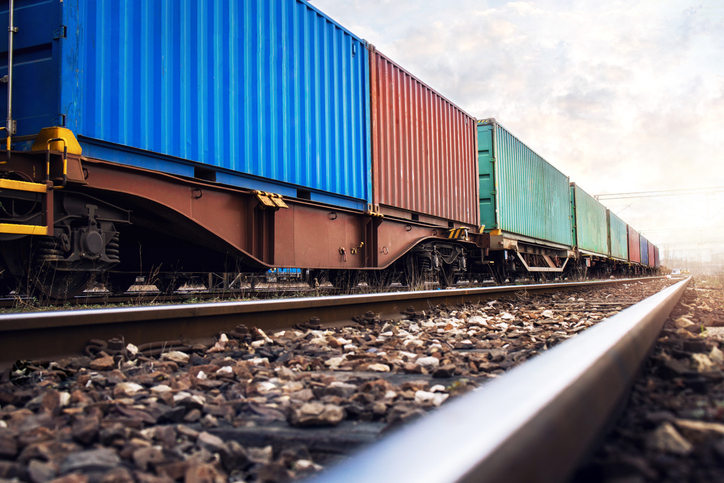Saudi Arabia turns to Iowa as it looks to expand ag imports and renewable energy capacity

 The Saudi government is eyeing increased partnerships with Iowa farmers and companies as it focuses on increasing agricultural imports and further developing its renewable energy capacity, said Abdulrahman Bakir, vice president with the Saudi Ministry of Investment, during a recent visit to Des Moines.
The Saudi government is eyeing increased partnerships with Iowa farmers and companies as it focuses on increasing agricultural imports and further developing its renewable energy capacity, said Abdulrahman Bakir, vice president with the Saudi Ministry of Investment, during a recent visit to Des Moines. Bakir, the vice president of investment, attraction and development, stopped in Des Moines last week, where he met with the Greater Des Moines Partnership International Trade Council, officials with the Iowa Economic Development Authority, and representatives of companies in the renewable energy and manufacturing sectors.
During an interview with the Business Record, Bakir said his country is looking at expanding its partnerships in the U.S. and Iowa, as it continues to unfold social and economic reforms.
The focus of the Iowa trip was primarily agriculture, agritech and food processing, he said.
Saudi Arabia imported almost $300 million in corn and $120 million in soybeans from the U.S. in 2018, the majority of which came from Iowa, Bakir said.
And demand for those products is growing in his country, he said.
“Food security is something we’re focusing on, and we recently launched the Saudi Arabia Livestock Co., and we are always keen on securing food security and developing an agenda that would impact positively on food security,” he said.
SALC has launched a $500 million incentive program to import agricultural products that are in short supply in Saudia Arabia, Bakir said.
And with social and economic reforms in Saudi Arabia, the demand for U.S products there is expanding, he said.
“It is evolving with the current dynamics, especially now that Saudi is open for business,” Bakir said. “It’s not the usual products that’s been there. U.S. companies have been established in Saudi since the founding of the kingdom, and now with social reforms and economic reform, we’re tapping into new industries, such as renewable energy and tourism.”
Bakir said Saudi Arabia is looking to Iowa’s expertise as it focuses on expanding its own capacity for both wind and solar energy.
“Iowa, we are aware, is a pioneer in driving our 21st-century economy when it comes to renewable energy,” he said. “We are in touch with companies from all over the world to come and tap into the kingdom’s opportunity in renewable energy. However, I’ve seen firsthand how Iowa is one of the top producers of wind energy in the U.S. and the world, and we wish to partner with them.”
Bakir said peace agreements, such as those recently signed between the United Arab Emirates and Israel, can make the whole region more competitive.
“When your neighbor is expanding their business or expanding their trade, for us it’s not being in a competition, but we’re here to make the region more competitive as a whole region, not only as a kingdom,” Bakir said. “The whole region is going through a dynamic shift, and Saudi Arabia is witnessing social reform and economic reform, and we hope to compete with the world economy, especially that we’re the only Arab country in the G20.”
The G20 is a group of the world’s 20 largest economies that comes together to discuss international economic and financial stability. Bakir’s visit comes two months before this year’s G20 leadership summit, which is scheduled for Nov. 21-22 in Riyadh, Saudi Arabia.
His visit also comes as Saudi Arabia embarks on its Vision 2030 plan, as it seeks to revitalize its economy, expand cultural and athletic opportunities, and create a climate where all residents can prosper, and where women can be empowered.
A key focus of the Vision 2030 plan is to make the country more easily accessible for international investment and trade, and diversify its oil-dependent economy, creating an environment where jobs are more accessible. It also is focusing on becoming more food-sustainable, exporting its own agricultural products and investing in renewable energy sources.
Bakir said the current political climate in the U.S. and the upcoming presidential election don’t influence his country’s trade decisions.
“Our relationship with the U.S. goes back 75 years with both parties,” he said. “Our relationship first comes with the U.S. citizen and with the U.S. as a country.”
Photo: Abdulrahman Bakir, vice president for Saudi Ministry of Investment, visited Des Moines recently to discuss expanding partnerships with Iowa farmers and renewable energy companies as part of his country’s Vision 2030 plan. Photo by Michael Crumb








